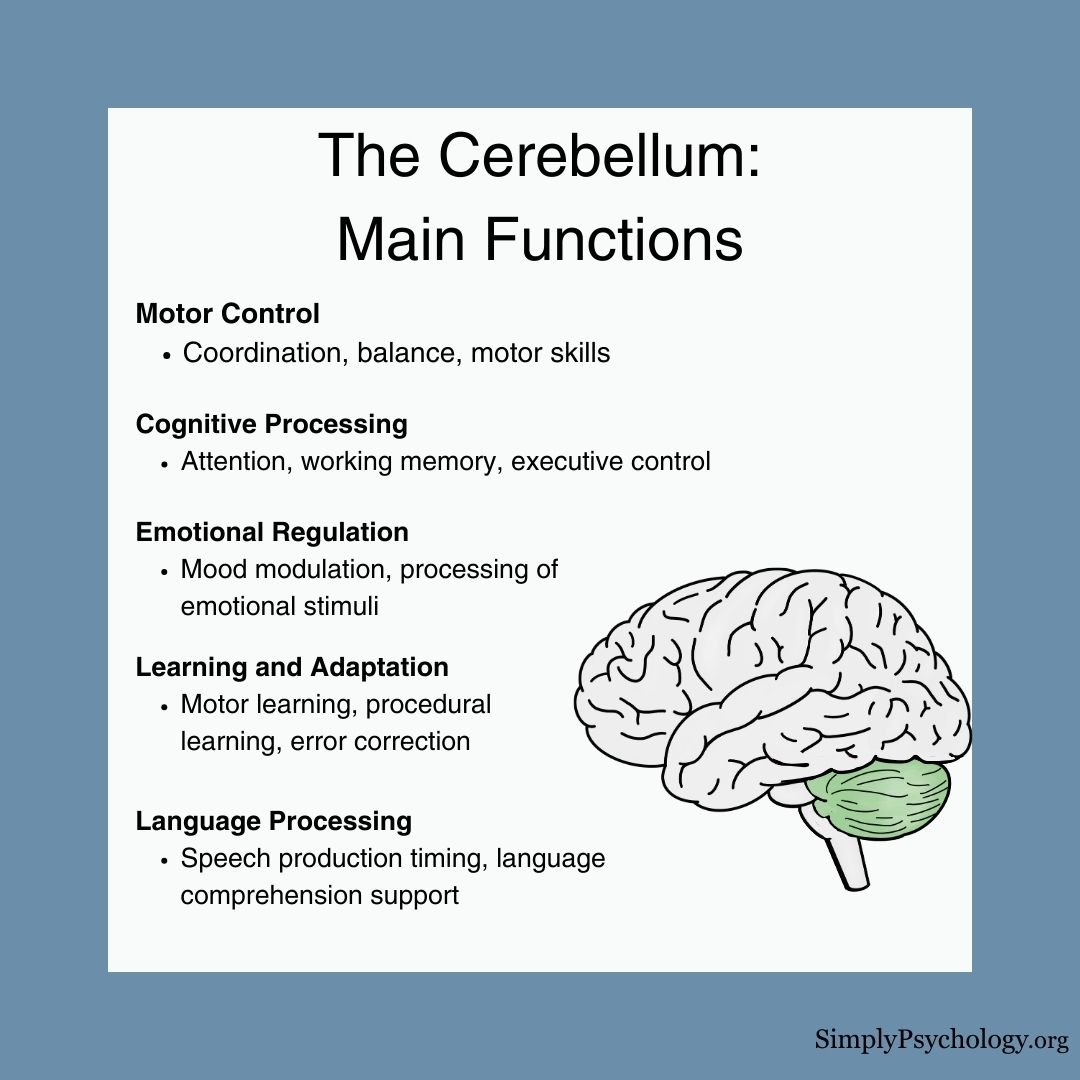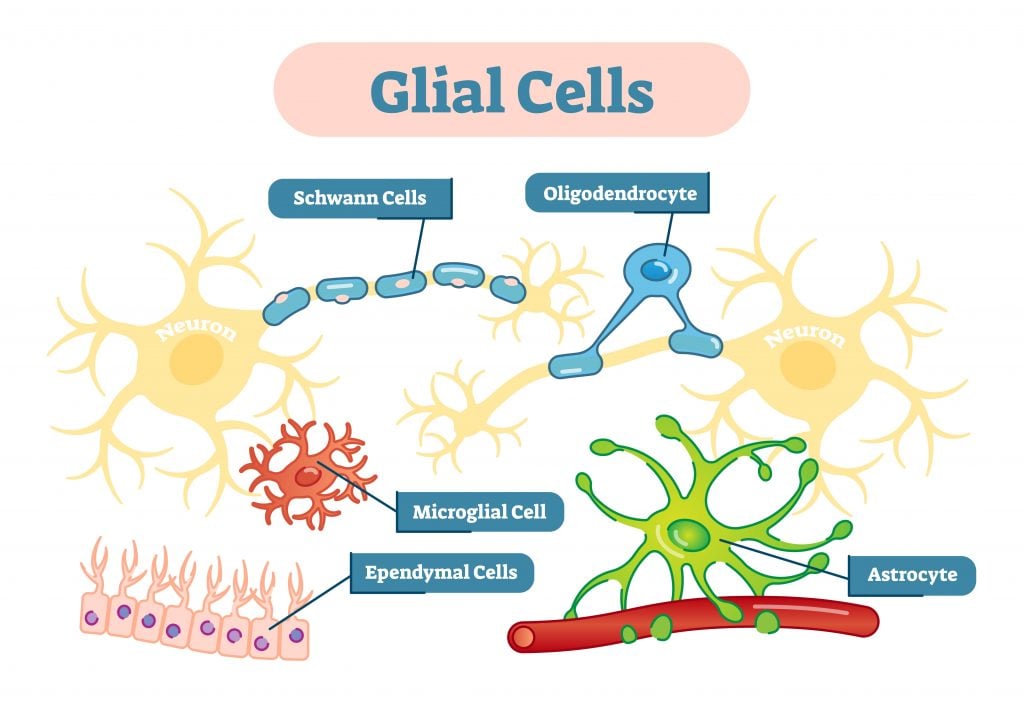The cerebellum, located at the base of the brain, is responsible for coordinating voluntary movements, maintaining posture, balance, and equilibrium, as well as refining motor movements to be smooth and precise. It also plays a role in some cognitive functions, such as attention and language processing.| Simply Psychology
Glial cells, also called glial cells or neuroglia, are cell which are non-neuronal and are located within the central nervous system and the peripheral nervous system that provides physical and metabolic support to neurons, including neuronal insulation and communication, and nutrient and waste transport.| Simply Psychology
The Central Nervous System (CNS) consists of the brain and spinal cord. It acts as the body's control center, processing sensory information and directing responses. The CNS coordinates both voluntary activities, like movement, and involuntary ones, such as breathing and heartbeat.| Simply Psychology



